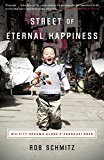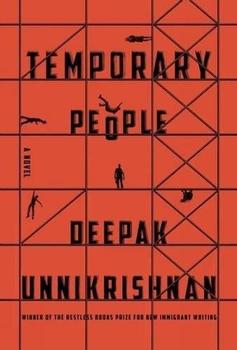Summary | Excerpt | Reading Guide | Reviews | Beyond the book | Read-Alikes | Genres & Themes | Author Bio

A Novel
by Mohsin Hamid"There was a moment when anything was possible. And there will be a moment when nothing is possible. But in between we can create." It is this grand arc – one between life and death – that the talented Mohsin Hamid traverses in his compelling new novel, How to Get Filthy Rich in Rising Asia. The unnamed narrator, simply written as the second person "you," knows he has to "create" – a family, a business, a life – a life that moves him far beyond the restrictive confines of his poor village childhood.
Now is indeed a time of meteoric growth in "rising" Asia. The 2013 Human Development report from the UN Development Program sheds light on the recent, rapid expansion of the middle class in the developing world. Over the next two decades, the report predicts, growth in the so-called "Global South" will cause significant shifts in economic and political power away from Europe and North America. By 2020 the combined gross domestic product of Brazil, China and India is expected to exceed the entire output of Canada, France, Germany, Italy, Great Britain and the U.S. put together.
It is this explosive social force that is at the heart of Filthy Rich. In just a matter of generations, entire segments of some of the world's most populous countries are seeing a remarkable shift in socio-economic dynamics. Even if the specific country in which this story is set remains unnamed, it just might be Pakistan (Hamid is a resident of Lahore), and so Hamid's "you" is firmly a part of this shift.
Some of the lessons "you" must follow to get filthy rich are standard self-help material: You must move to
the city and you must get an education. Others - don't be afraid to use violence, make friends with bureaucrats - are less so. The book's format, structured in a dozen chapters with these self-help "lessons," might seem gimmicky, but it proves to be a very efficient vehicle to document one man's life from birth to death.
As the story opens, "you" is shivering with fever and peering out at the world from the bars under his mother's cot. When it ends, the same "you" is looking out through a set of bars again, although this time his surroundings are decidedly more posh – a condominium apartment. The metaphor of viewing life from behind bars is a pithy one – how ever much you work, Hamid seems to imply, you cannot really escape from society's binding cultural and social norms.
Of course even these binding norms are beginning to fray at the edges. The concept of a "joint" family with generations of one family living under the same roof is slowly becoming a thing of the past, with smaller nuclear family units taking its place. The move to urban areas might not necessarily be converting entire countries out of an agrarian model, but it sure is leaving very few behind to till the fields. The protagonist's own family, for example, moves from the countryside to the city – and splinters from a large joint household to a nuclear unit. Relationships between young men and women are also changing ever-so-slightly. Filthy Rich demonstrates how all of these social norms are being strained. The protagonist falls in love with a girl Hamid simply refers to as "the pretty girl." The tender maturing of their romance is one of the book's highlights, lending a touch of intimacy to a story that otherwise might have just devolved into social metaphor masquerading as a novel.
In one of the most crisply edited books I have read in a long time, we watch as the protagonist moves up the rungs of social mobility. His illiterate father did follow one of the many dictates the book lays out by moving to the city, but his lack of education meant that he couldn't rise very far. The protagonist manages an education and has enough street smarts to get to actual riches by becoming an entrepreneur in the bottled water business (see Beyond the Book). As an aside, there were many times when this book reminded me of the popular and critically acclaimed movie set in rising Asia, Slumdog Millionaire (which is based on the book Q&A by Vikas Swarup). They both illustrate that in a country where an individual can't control much, fatalism is an essential survival tool.
The second person "you" is hard to read, although talented writers like Junot Diaz have done wonders with it, and Hamid's usage of "you" feels especially appropriate for this biting story. The "you," Hamid seems to say, encompasses every individual in rising Asia. In countries where economic opportunity is growing but the individual still faces daunting odds against any modicum of success, almost every citizen is a nameless "you." The one represents the whole; each person's story follows more or less a similar trajectory. In rising Asia, the path to success (and to downfall) are pretty much carved out. What happens to him, happens to me, happens to you – it happens to all of us. However, it's interesting to consider that while one person's arc might not count for much in the larger scheme of things, billions of people moving up together can create vast ripple currents of change. As the UN report shows, they can collectively create the behemoth that is "rising Asia."
![]() This review
first ran in the April 3, 2013
issue of BookBrowse Recommends.
This review
first ran in the April 3, 2013
issue of BookBrowse Recommends.

If you liked How to Get Filthy Rich in Rising Asia, try these:

by Rob Schmitz
Published 2017
An unforgettable portrait of individuals who hope, struggle, and grow along a single street cutting through the heart of China's most exhilarating metropolis, from one of the most acclaimed broadcast journalists reporting on China today.

by Deepak Unnikrishnan
Published 2017
Until now, the humanitarian crisis of the so-called "guest workers" of the Gulf has barely been addressed in fiction. With his stunning, mind-altering debut novel Temporary People, Deepak Unnikrishnan delves into their histories, myths, struggles, and triumphs.
Your guide toexceptional books
BookBrowse seeks out and recommends the best in contemporary fiction and nonfiction—books that not only engage and entertain but also deepen our understanding of ourselves and the world around us.